Pros And Cons of Living in Tauranga, Bay Of Plenty
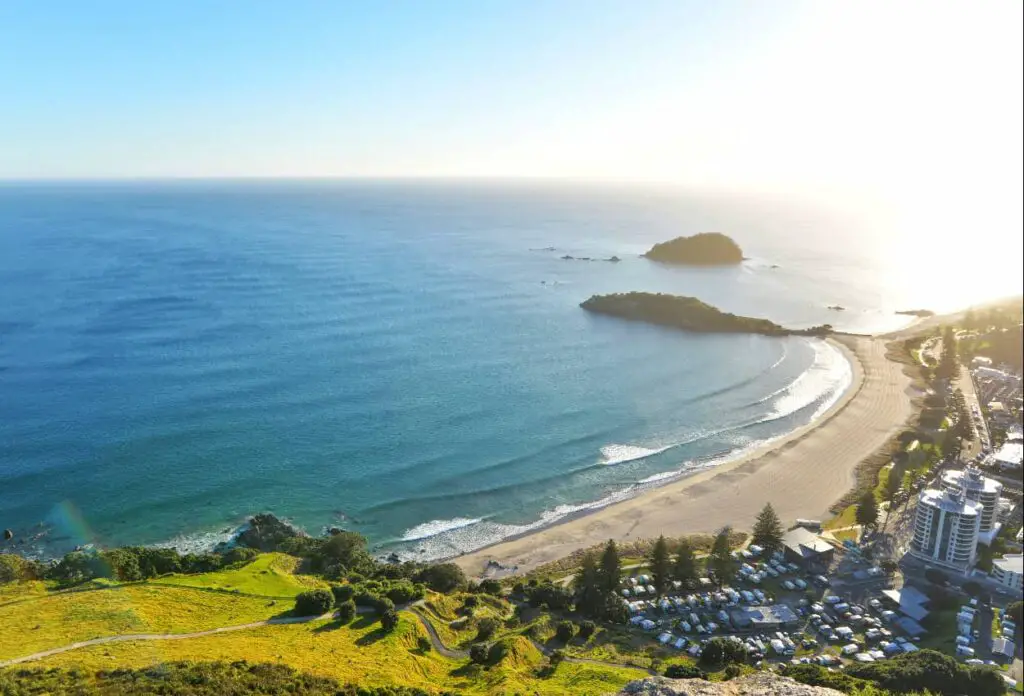
Whether you’re considering moving to Tauranga permanently for a job, studies, or retirement, you need to consider the pros and cons of living in the city. The Bay of Plenty region is one of unmatched beauty and wonderful waterbodies – but what comes along with it are the cons that might upset you.
Pros of living in Tauranga
- Comparatively low cost of living
- Living near the beautiful beach
- Rich in culture and history
- High quality of life
- Easy access to all amenities of a modern lifestyle
Cons of living in Tauranga
- High house prices
- Lack of options at the university level
- Inadequate public transport
- Goods are expensive
Tauranga truly has become a top destination for retirees due to the climate and the lower costs of housing compared to Auckland, and moreover, it’s only 2.5 hours away. Living in Tauranga is a one-in-all package deal. It’s like experiencing a lifetime’s worth of seasons in one.
Tauranga has many good things that balance out the bad, but you need to know the entire list of benefits and drawbacks of living in Tauranga before settling there. Take a look ahead and get ready to jump right in!
Living in Tauranga: all you need to know
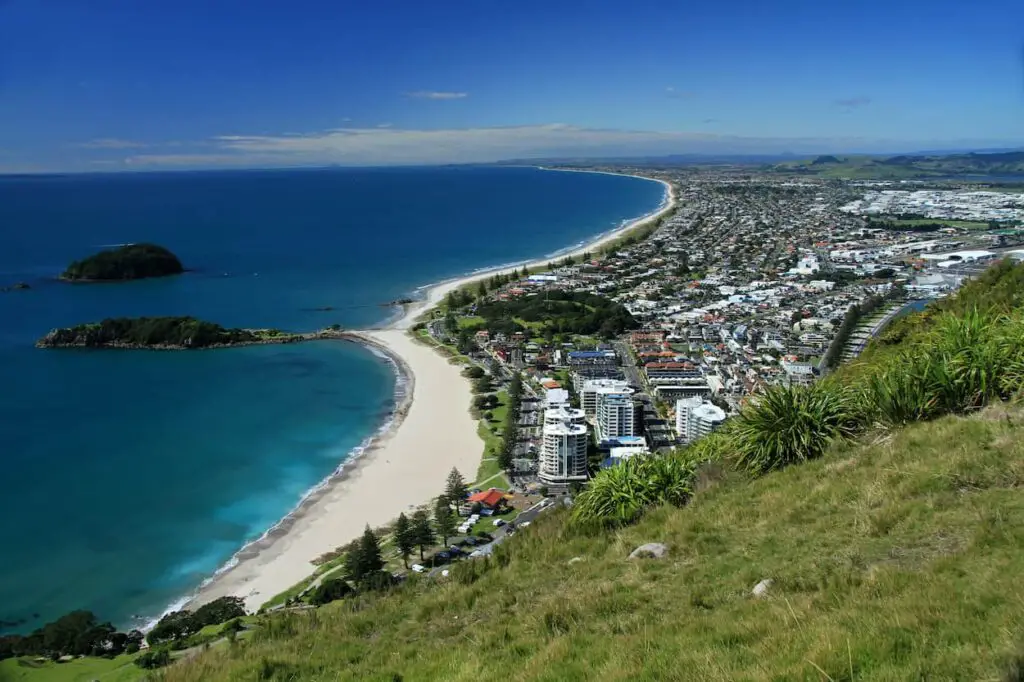
Tauranga is a coastal or harbourside city located in the Bay of Plenty region of New Zealand’s North Island.
It’s the fifth most populous city in New Zealand, with about 150,000 residents, and is flourishing and booming in business and tourist sites.
The Bay of Plenty is one of the top tourist destinations in New Zealand’s North Island, and Tauranga is one of the most popular destinations of the Bay of Plenty, together with Rotorua.
It’s also known as a beach town for its wonderful waterbodies of beaches, saltwater pools, and lakes.
The area is also home to extraordinary volcanoes, such as White Island and Mount Maunganui, with twisting paths all around. Locals and tourists are also blessed to have multiple wildlife sanctuaries.
It attracts a large number of locals and tourists to these destinations as they offer a very good and enjoyable quality of life.
If you are thinking about moving to Tauranga, let us tell you that it might be the best decision of your life. The quality of life here is unbeatable, and the overall experience of family life and job environment is very relaxed and easygoing.
Besides that, Tauranga offers a variety of views, such as a historical area, busy marketplaces, tidal waves coming right up to your feet at the harbourside, and splendid nightlife.
Living in Tauranga is more of a good decision than a bad one. This is because the pros outweigh the cons of lifestyle here.
Although the winters do come in strong here, and it may seem harsh at first — but where else will you find a big and quiet city like this with moderate temperatures?
The temperature ranges between 7°C and 24°C throughout the year, which makes both the winters and summers moderate. The unemployment rate is less than 5% which means that the job opportunities are many.
The quality of life, salaries, housing prices, and renting costs will all be discussed in the pros and cons below.
What are the good and bad things about Tauranga?
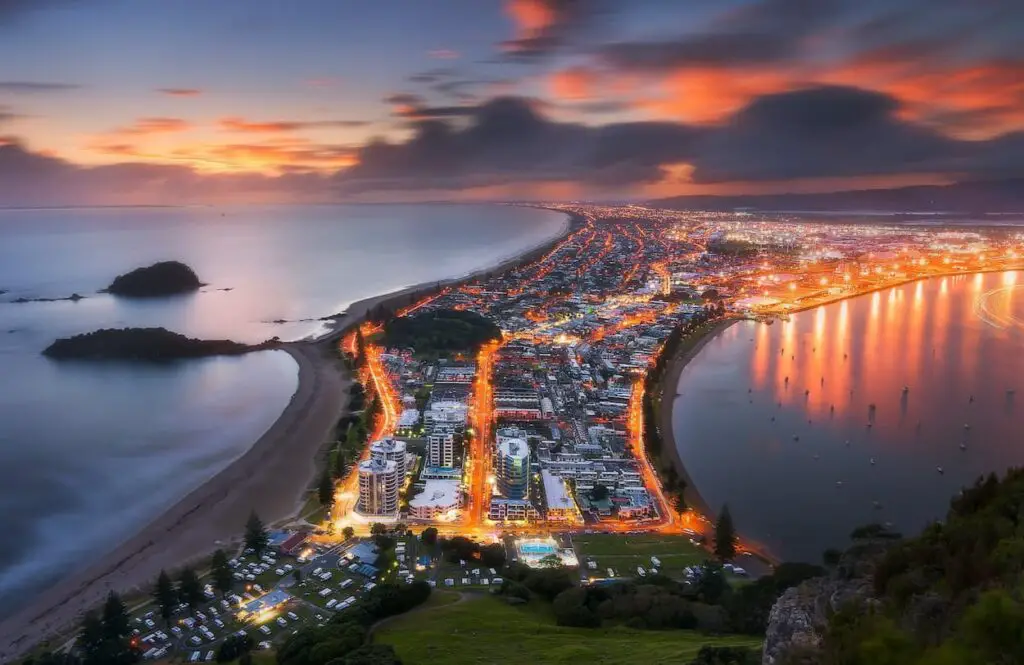
Tauranga might seem idyllic, but don’t be fooled; it has its negatives. Here are the best and the worst things about living in Tauranga.
Pros of living in Tauranga
1. Low cost of living
The greatest advantage of living in Tauranga, Bay of Plenty, is its low cost of living! What more could you even ask for? Compared to the other states and areas of New Zealand, in Tauranga, you will be able to live a comfortable life with savings.
Any individual with a good, average salary can accommodate accordingly. Generally, a single person needs about NZ$3,811 per month to have a good life in Tauranga, while a family of four would need about NZ$6,743.
And we’re not only talking about housing prices and rents here; it includes all the other factors making up the cost of living.
House owners in Auckland can sell their house and buy a more affordable one in Tauranga, plus they will be left with some cash to live on. Sounds like a great deal, or?!
Rent prices per month for a two-bedroom house range from NZ$550 per week to NZ$624, with a median rate of NZ$610 per week, which is considerably less than what it costs in Auckland. The average monthly salary is NZ$4,000, which is more than enough to balance all the costs.
2. Living near beautiful beachy places
One of the main reasons to prefer Tauranga as your permanent home is its closeness to the beach and all that it has to offer. While living in Tauranga, one can fully enjoy a beach lifestyle.
The entire city is surrounded by beautiful, sandy beaches with cool places like Mount Maunganui, Ohope, and Papamoa.
Wouldn’t you want to wake up right next to the freezing and chilly breeze of the beach someday too? You can find a lot of beauty and pleasure on the coastal sides of the city. Be ready to experience all four kinds of weather with a constant picturesque background.
The beachy surroundings also allow a lot of fun activities such as snorkeling, surfing, kayaking, diving, fishing, boating, swimming, and watersports. Be ready to make water-based activities a habit if you are thinking about shifting here.
3. Rich in culture and history
Who doesn’t love a place that values its culture and history? Tauranga will offer you a chance to live amid culture and history 24/7.
The city is known for its rich music and heritage, which makes it so special. Bonfires and fireworks are also common practices during festivities at night. History is seen throughout the city in the structure and formation of buildings and old shops.
Another factor is providing children a chance to understand culture by living in it and with it. They will learn that this is not all bookish talk.
Instead, it will impart the values and ideas of culture to the younger generation and how it shapes our identities and our whole lives.
4. Good quality of life
Tauranga has an exceptionally good quality of life, making it a very suitable choice for residence. As mentioned above, the cost of living in the city is relatively low – from groceries to rent prices.
The climate is also quite moderate, with no intense weather changes. Since the population is small (about 150,000), the level of pollution is relatively low.
Another detail of the quality of life is the good inbuilt infrastructure and healthcare facilities. Public hospitals and licensed clinics offer good facilities such as clean and proper bedding, fresh, hygienic food, and a clean environment all around.
In case of an unexpected situation, hospitals are interconnected with other larger cities on North Island.
Cons of living in Tauranga
1. High house prices
Renting a house in Tauranga is not much of a big deal and won’t make a big hole in your pocket. But, actually, buying a home is a completely different concept from renting a house.
The prices of purchasing a house have been skyrocketing ever since the pandemic, and the real estate sector is crippling down. As of September 2020, Tauranga’s median house prices dropped from over a million dollars to NZ$800,000.
This means if the pandemic hit hard with a loss, then the post-pandemic period learned how to overcome that loss by drastically increasing house prices.
Now, it is impossible to consider any house below the value of one million. For an average median yearly salary, buying a home is a pretty long run when you have taxes and a moderate-to-high cost of living.
2. Lack of options at the university level
Every place has its drawbacks, and for Tauranga, the major drawback which takes back all its modernization and urbanization is the lack of universities in this city. Yet, it does have a campus of the University of Waikato, but only a short list of courses is offered in Tauranga.
That means you will need to plan your studies thoughtfully to complete an entire program in Tauranga.
If you decide to take classes at the University of Waikato in Hamilton campus, that will result in traveling long distances for education at the university level. Or, you might have to consider the option of moving completely to another city altogether.
It’s important to understand that the education system of the Bay of Plenty is pretty good indeed, but the focus is mostly on providing quality services and education to school-level children and teens. That said, the University of Waikato isn’t seen as one of the best places to study in New Zealand.
To find a good and renowned university, people have to shift elsewhere. Hence, if you are looking for the best college education in New Zealand, head to Auckland, Christchurch, Wellington, or Dunedin.
3. Undeveloped public transport
Everyone needs to use public transport at some point or the other. It doesn’t matter whether you need it for a ten-minute ride or going from one suburb to another — the transport facilities should be available, regardless.
The public transport system of Tauranga, essentially the Bay of Plenty, is almost nonexistent. And the excuse is that since Tauranga is not a big city, therefore, it doesn’t need public transport.
The situation of facilities and services – all are quite far from perfect. So, if you are going to live here, make sure to have your own reliable means of transport.
4. Many things are expensive
Since many goods are brought from other parts of the country to the Bay of Plenty region, they end up being sold expensively in the market. Most products have to be brought from other cities, which leads to an increase in the price of goods.
As commuting from one region to another takes a lot of time, energy, and effort, thus, it has to be paid back by the rise in the prices of goods.
If you were a truck driver, you’d probably think the same way, too, after an exhausting and frustrating day of deliveries.
Goods such as groceries, petrol, fuel, clothes, and other items must be brought from somewhere else. This is a huge con for individuals who earn an average salary and have a family to take care of.

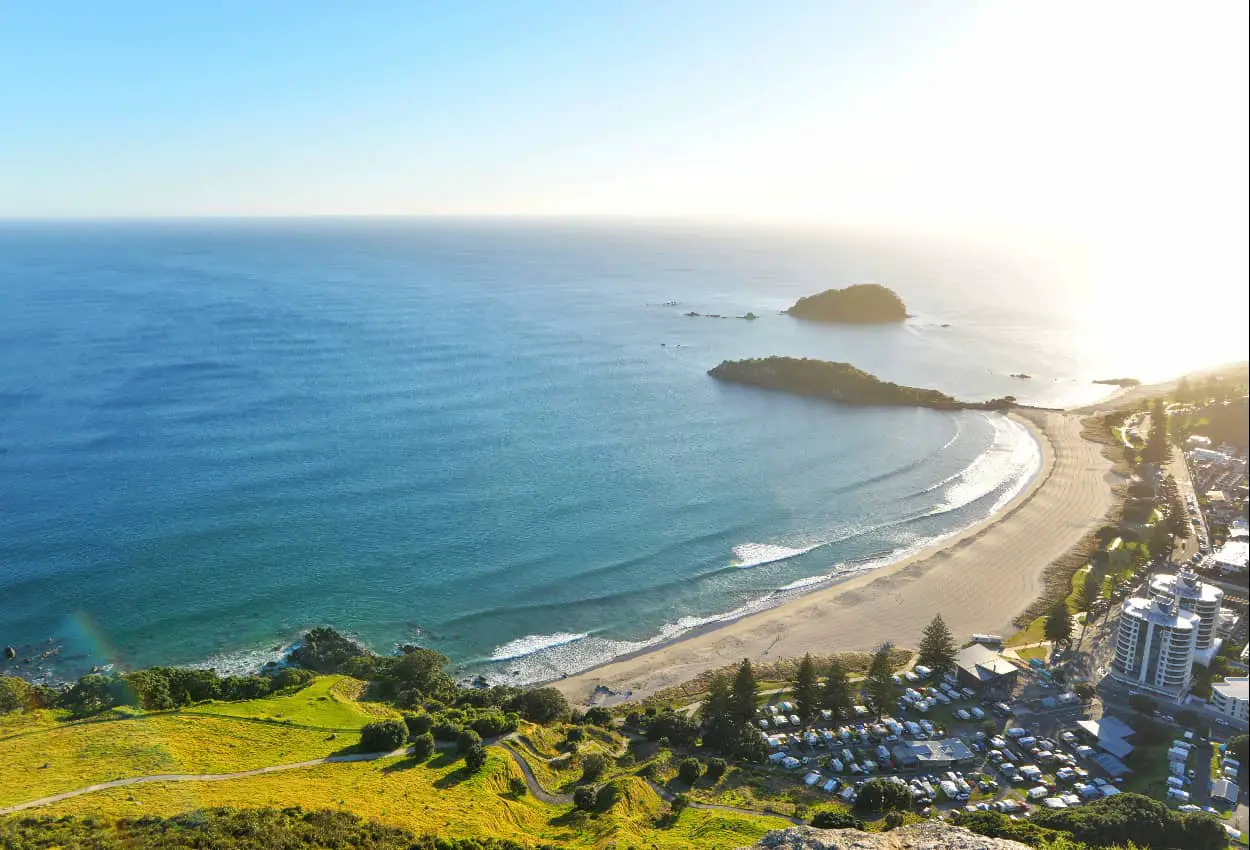

![Pros and Cons of Living in Auckland: Your Complete Guide [2024]](https://simplenewzealand.com/wp-content/uploads/2023/04/Depositphotos_417009116_L-1-768x512.jpg)
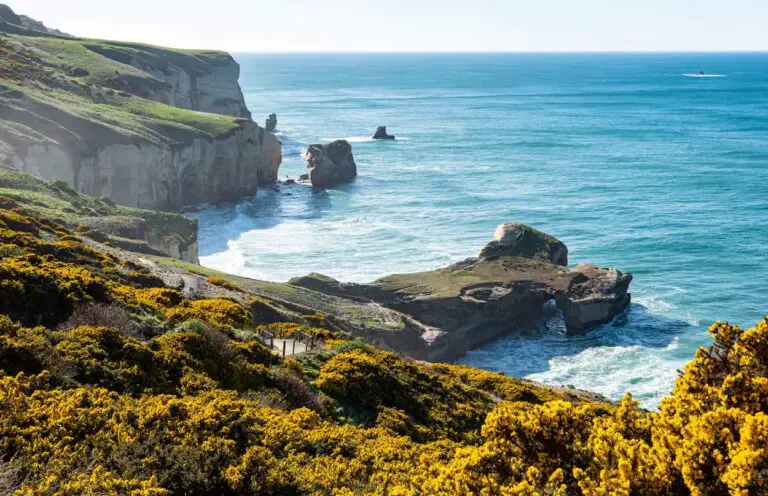
![17 Best And Worst Suburbs in Christchurch [2024 Guide]](https://simplenewzealand.com/wp-content/uploads/2023/09/Park-Hagley-CHCH-768x512.jpg)
![MyMSD: All You Need To Know in 2024 [+Setup]](https://simplenewzealand.com/wp-content/uploads/2023/05/phillip-goldsberry-AHIA8Bs_HA-unsplash-1-768x512.jpg)
![How To Buy a Motorcycle in New Zealand: Ultimate Guide [2024]](https://simplenewzealand.com/wp-content/uploads/2023/04/Depositphotos_39664953_L-1-768x512.jpg)